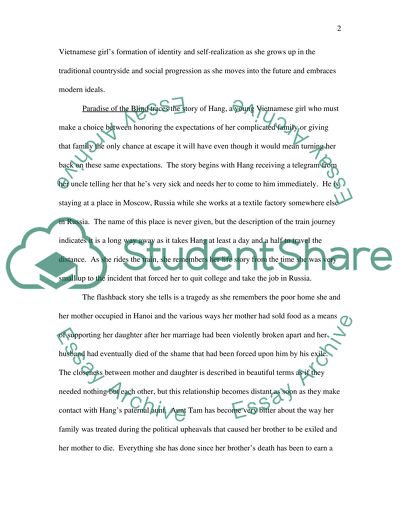Cite this document
(Paradise of the Blind by Duong Thu Huong Book Report/Review, n.d.)
Paradise of the Blind by Duong Thu Huong Book Report/Review. Retrieved from https://studentshare.org/literature/1563111-choose-a-novel-and-write-a-term-paper-about-it
Paradise of the Blind by Duong Thu Huong Book Report/Review. Retrieved from https://studentshare.org/literature/1563111-choose-a-novel-and-write-a-term-paper-about-it
(Paradise of the Blind by Duong Thu Huong Book Report/Review)
Paradise of the Blind by Duong Thu Huong Book Report/Review. https://studentshare.org/literature/1563111-choose-a-novel-and-write-a-term-paper-about-it.
Paradise of the Blind by Duong Thu Huong Book Report/Review. https://studentshare.org/literature/1563111-choose-a-novel-and-write-a-term-paper-about-it.
“Paradise of the Blind by Duong Thu Huong Book Report/Review”, n.d. https://studentshare.org/literature/1563111-choose-a-novel-and-write-a-term-paper-about-it.


